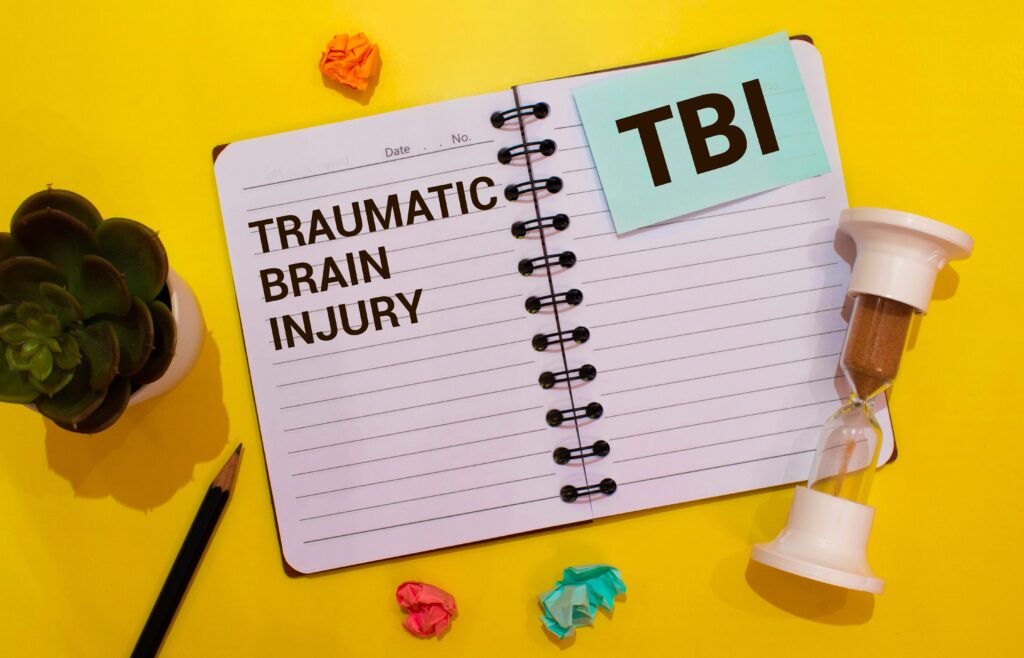Traumatic brain injuries, or TBIs, can happen when a significant amount of force is applied to an individual’s head in an accident scenario. These injuries, which include brain hemorrhages, diffuse axonal injuries, concussions, and comas, can bring about severe limitations, including ongoing migraines, short-term or long-term memory losses, cognitive impairments, and, in some cases, a permanent coma or vegetative state.
TBIs frequently occur during accidents where others are negligent, such as motor vehicle collisions and slip and falls.
If you or someone you love suffered a TBI in one of these occurrences, a skilled TBI lawyer in Calgary can immediately investigate the circumstances and determine your eligibility for filing a claim or lawsuit. Then, your lawyer can handle every step of the process for you, from gathering evidence to filing a claim with the at-fault party’s insurance company or, if necessary, litigating your case to a resolution in the court system. Your lawyer will do everything they can to maximize the compensation you receive for your TBI and its aftermath.
Common Accidents that Can Result in TBIs
TBIs are a serious consequence of many types of accidents, including motor vehicle crashes and slip and fall incidents. These injuries occur when the head experiences a sudden impact or jolt, causing the brain to become damaged. Often, these accidents happen because of the negligence of another person or entity, meaning they failed to take reasonable care to prevent harm.
- Motor Vehicle Accidents – Motor vehicle accidents are a leading cause of TBIs. These accidents include collisions involving cars, trucks, motorcycles, and bicycles. In a typical car accident, a TBI can occur when the head hits a hard surface like the steering wheel, dashboard, or window during the crash. Even if the head doesn’t make direct contact with an object, the force of the collision can cause the brain to move rapidly inside the skull, leading to a TBI, such as a concussion or brain hemorrhage. Negligent behaviours like speeding, distracted driving (such as texting), or driving under the influence of drugs or alcohol can greatly increase the chances of a crash that results in a TBI. For motorcyclists and bicyclists, who have less physical protection, the risk is even higher. Helmets can help reduce the severity of a brain injury, but they do not eliminate the risk entirely when a driver acts carelessly.
- Slip and Fall Accidents – Slip and fall accidents are another common source of TBIs, especially in places like grocery stores, office buildings, or public sidewalks. These accidents typically happen when someone slips on a wet or uneven surface or trips over obstacles that were negligently left in walkways. For instance, if a store owner fails to clean up a spill or put out a warning sign, and someone slips and hits their head, that person may suffer a TBI. With older adults, who are more vulnerable to serious falls, even a minor slip can result in a brain injury. If the fall is the result of unsafe conditions that should have been fixed, the property owner may be held responsible for the injury.
- Negligence and Responsibility – In both motor vehicle accidents and slip and falls, TBIs can often be traced back to negligence. Whether it’s a reckless driver or a negligent property owner, the person or entity responsible for causing the conditions that led to the accident may be legally liable. Victims of TBIs resulting from others’ negligence can seek compensation for their injuries, including lost income and pain and suffering.
Common Types of Medical Treatment for a TBI

Treating a TBI after an accident is a complicated process that depends on the severity of the injury. TBIs can range from concussions to more severe brain damage, and the medical treatment varies accordingly. The most important types of medical treatments for a TBI focus on stabilizing the accident victim, preventing further damage, and promoting recovery:
- Initial Emergency Care – The first step in treating a TBI often begins in the emergency room after an accident. When a person arrives with a suspected brain injury, the primary goal is to stabilize their condition. Medical imaging, such as a CT scan, is used to assess the extent of the brain injury and detect any bleeding or swelling.
- Surgery – In accident cases involving more severe TBIs, surgery may be necessary. If there is significant swelling or bleeding in the brain, doctors may perform surgery to relieve pressure and prevent further damage. Without these interventions, severe brain damage or death may occur.
- Medication – Medications are also an important part of TBI treatment. Anti-seizure drugs may be prescribed to prevent seizures, which are common after a brain injury. In cases where swelling is a problem, diuretics or other medications may be used to reduce pressure inside the skull. In addition, pain relievers and sedatives may be given to keep the accident victim comfortable and calm during the healing process.
- Rehabilitation – For many TBI patients, rehabilitation is a crucial part of their recovery. Rehabilitation can include physical therapy, occupational therapy, and speech therapy. These therapies help accident victims regain lost skills, such as walking, talking, or performing daily activities. Cognitive therapy may also be necessary to help with memory, problem-solving, and attention. The goal of rehabilitation is to improve the victim’s quality of life and help them return to a normal routine.
If you or a loved one suffered a TBI in an accident, an experienced personal injury lawyer can handle the legal steps of your claim or lawsuit while you focus your attention on making a full recovery.
How to Prove the Legal Elements of a TBI Case

Proving the legal elements of a TBI case arising from a motor vehicle crash or slip and fall accident involves establishing that the injury resulted from someone else’s careless or reckless behaviour. To successfully prove a TBI case, you must demonstrate four key legal elements: duty, breach of duty, causation, and damages.
- Duty of Care – The first element is proving that the responsible party owed you a legal duty of care. In both motor vehicle accidents and slip and fall cases, this is generally easy to establish. For motor vehicle accidents, drivers have a legal obligation to drive safely and follow traffic laws to prevent harm to others on the road. In a slip and fall case, property owners have a duty to maintain their premises in a reasonably safe condition, ensuring that visitors are not exposed to hazardous conditions like wet floors or uneven surfaces.
- Breach of Duty – Next, you must show that the responsible party breached their duty of care. This means proving that they acted negligently or carelessly. In a motor vehicle accident scenario, a breach of duty may involve a driver speeding, texting while driving, or running a red light. For a slip and fall case, a breach of duty can occur if a property owner fails to fix a known hazard, such as not repairing broken stairs or neglecting to put up a warning sign for a wet floor. To prove a breach of duty, you may need evidence like traffic reports, surveillance footage, or witness testimony.
- Causation – The third element is causation, which means proving that the breach of duty directly caused your TBI. In other words, you must show that the accident or fall led to your injury – not some other unrelated event. Medical records and expert testimony play a critical role in proving this element. A doctor may need to testify that the TBI was consistent with the type of accident in which you were involved. For instance, if you hit your head on the dashboard during a car crash or fell and struck your head on a hard surface, medical evidence can link the accident to your brain injury.
- Damages – The final element is proving damages. This involves showing that your TBI resulted in measurable losses, such as lost income, emotional distress, and pain and suffering. Medical and rehabilitation records and evidence of missed work time can demonstrate the full extent of your damages. You may also need testimony from doctors and economists to calculate the effects on your earning capacity.
Settling or Litigating a TBI Case Favorably
Deciding whether to settle or litigate a TBI case is a crucial decision that can have a major effect on your financial recovery and future well-being. Both options have their advantages and disadvantages, and making the right choice depends on the specifics of your case, the strength of your evidence, and your personal goals.
Settling a TBI Case

In most personal injury cases, including TBI cases, settlement is the more common route. A settlement is an agreement between you and the other party (usually their insurance company) to resolve the case without going to trial. Settling a TBI case has several advantages. First, it is generally faster than going through a lengthy court process. This means you can receive compensation sooner, which is important if you have significant lost earnings and are unable to work.
Settlements also provide certainty. When you settle, you know exactly how much compensation you will receive. In contrast, going to trial is unpredictable. Even with strong evidence, there is no guarantee that a jury will rule in your favour or award the amount of compensation you are seeking. Additionally, settlement avoids the emotional stress and time commitment of a court trial.
However, one downside to settling is that you may receive less compensation than if you win at trial. Insurance companies often try to offer less than what a case is worth, so it’s important to negotiate carefully.
Litigating a TBI Case in Court
Litigating your TBI case means taking it to court and having a judge or jury decide the outcome. While this option takes longer and is more stressful, it may result in a larger payout. If your case is particularly strong and the insurance company’s offer is too low, going to trial can lead to a more favourable outcome.
Litigating also allows you to hold the negligent party accountable in a public forum, which may be important for some individuals. However, trials come with risks. If the jury does not side with you, you may walk away with nothing – or with far less than what you hoped.
Making the Decision
The decision to settle or litigate should be made with the help of an experienced personal injury lawyer who understands the complexities of TBI cases. They can evaluate the strength of your case, consider the offer that’s on the table, and help you weigh the risks and benefits of both options before making a final decision.
Recovering Fair Compensation for a TBI
When you suffer a TBI from a motor vehicle crash or slip and fall accident, there are several forms of compensation you may be entitled to recover. These damages are meant to address the financial, physical, and emotional toll that the TBI takes on your life. The most common forms of compensation include lost income, loss of future earning capacity, pain and suffering, emotional distress, and loss of life enjoyment.

- Lost income – If your TBI disability prevents you from working for an extended period, you can recover compensation for the income you lost while recovering. This includes the earnings or salary you would have earned if you had not suffered an injury.
- Loss of Future Earning Capacity – In more severe cases, a TBI may limit your ability to return to work or perform the same job you did before the accident. If the injury affects your long-term ability to earn an income, you may be entitled to receive compensation for loss of future earning capacity. This form of compensation accounts for the income you will miss out on in the future because of the injury’s effects on your ability to work. Calculating future earning capacity often involves expert testimony and analysis of your skills, education, and the severity of your TBI.
- Pain and Suffering – Pain and suffering compensation is meant to cover the physical pain and discomfort resulting from your TBI. A brain injury can result in headaches, dizziness, or chronic pain that may last for months or years. This form of compensation acknowledges the long-term physical pain that you endure as a direct result of the accident.
- Emotional Distress – A TBI often has emotional consequences, such as anxiety, depression, or post-traumatic stress disorder (PTSD). Emotional distress damages compensate you for the mental anguish and psychological effects resulting from the injury.
- Loss of Enjoyment of Life – A severe TBI can limit your ability to participate in activities you once enjoyed, such as hobbies, sports, or spending time with friends and loved ones. Compensation for loss of life enjoyment is intended to address the diminished quality of life resulting from your injury.
Contact an Experienced TBI Lawyer Today
If you or a person you love suffered a TBI in a motor vehicle crash or slip and fall accident due to someone else’s negligence, you may have a right to recover various forms of compensation. A skilled personal injury lawyer in Calgary can aggressively fight for your interests during settlement negotiations – or during litigation – in pursuit of the monetary recovery you deserve.
